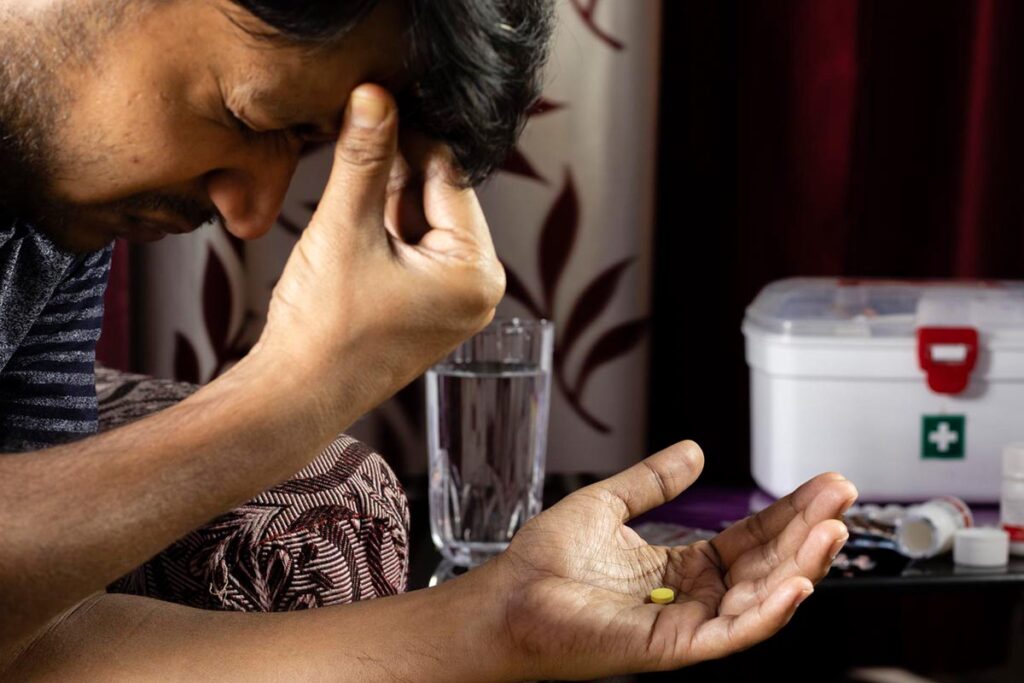When someone decides to seek help for drug addiction, knowing where to start can feel overwhelming. The good news is that there are several effective treatment options tailored to different needs, lifestyles, and stages of addiction. At Capistrano Beach Recovery, we focus on providing compassionate, evidence-based care that empowers each person to choose the path that fits them best.
Drug addiction affects people from all walks of life, and no single treatment works for everyone. What’s important is understanding the range of options available and finding the one that aligns with your recovery goals and current life circumstances. Whether you need the structure of residential care or the flexibility of outpatient treatment, help is available.
1. Inpatient Rehabilitation (Residential Treatment)
Inpatient rehab is a structured, intensive treatment program where clients live at the facility full-time. This option is ideal for individuals with severe addictions, those who have relapsed in the past, or people without a stable, supportive home environment.
Key features of inpatient rehab include:
- 24/7 medical and emotional support
- Daily individual and group therapy sessions
- Structured routines and therapeutic activities
- On-site access to medical care and holistic services
- Distance from triggers and access to peer support
At Capistrano Beach Recovery, our inpatient program is designed to foster deep healing by combining clinical care with holistic therapies, wellness practices, and personalized treatment plans. Each client’s experience is guided by a multidisciplinary team, including doctors, therapists, case managers, and support staff who collaborate to address the full spectrum of addiction.
Residential treatment not only provides a safe space for detox and early recovery—it also builds a foundation of skills and routines that support long-term sobriety. Clients often engage in life skills training, relapse prevention planning, mindfulness practices, fitness programs, and therapeutic community-building during their stay.
2. Outpatient Programs
Outpatient treatment is a more flexible option for those who do not require 24/7 supervision. It’s often recommended for individuals with mild to moderate substance use disorders or as a step-down program after completing inpatient care.
Outpatient programs vary in intensity, with options such as:
- Standard Outpatient Program (OP) – Typically 1–3 sessions per week, allowing for continued engagement with work or school.
- Intensive Outpatient Program (IOP) – A middle-ground level of care offering 9–15 hours of therapy per week, often including both individual and group sessions.
- Partial Hospitalization Program (PHP) – A more intensive option, PHP involves structured daytime treatment for 20+ hours per week while still allowing clients to return home in the evening.
This level of care allows clients to maintain daily responsibilities such as work, school, or caregiving while participating in therapy and support services. Outpatient programs also provide a supportive bridge for those reintegrating into the community after residential treatment.
Though Capistrano Beach Recovery specializes in inpatient care, we assist every client with aftercare planning and connections to quality outpatient providers when needed. This continuity ensures that each individual has access to care that evolves with their recovery journey.
Benefits of outpatient treatment include:
- Flexible scheduling for busy lifestyles
- Continued accountability and professional support
- Opportunities to practice new skills in real-world settings
- Lower cost compared to inpatient programs
Outpatient care is especially effective for those with strong support systems at home and a stable living environment. It requires a high level of personal responsibility but offers the opportunity to stay connected to family and community during the healing process.
3. Medication- Assisted Treatment (MAT)
Medication-Assisted Treatment combines FDA-approved medications with counseling and behavioral therapies to support recovery, particularly for opioid or alcohol addiction. MAT helps manage withdrawal symptoms, reduce cravings, and prevent relapse.
Common medications used in MAT include:
- Buprenorphine – A partial opioid agonist that helps reduce cravings and withdrawal symptoms.
- Methadone – A full opioid agonist used to stabilize individuals with opioid dependence.
- Naltrexone – Blocks the effects of opioids and reduces the rewarding effects of alcohol.
- Acamprosate – Helps maintain abstinence from alcohol by restoring brain balance disrupted by chronic drinking.
MAT is often used in conjunction with other treatment options and is most effective when part of a comprehensive plan that includes therapy, support, and lifestyle changes. Studies show that MAT can improve treatment retention, reduce illicit drug use, and lower the risk of overdose.
MAT is particularly effective for:
- Individuals with long-term opioid dependence
- Those who have experienced multiple relapses
- People with chronic pain and addiction
- Clients at high risk of overdose or serious withdrawal symptoms
While Capistrano Beach Recovery does not offer long-term MAT on-site, we collaborate with trusted medical providers and community programs who can offer this service safely and effectively. We also incorporate short-term medication management for detox when clinically appropriate.
Choosing the Right Treatment Path
Choosing the right treatment option depends on several personal and clinical factors:
- Severity and duration of addiction
- Previous treatment attempts
- Co-occurring mental or physical health conditions
- Support system and home environment
- Work, school, or caregiving responsibilities
At Capistrano Beach Recovery, we conduct a thorough assessment upon admission to determine the most appropriate level of care for each client. We believe in empowering individuals to make informed decisions about their treatment, with support from a dedicated care team every step of the way.
No matter which path you choose, the goal remains the same: to help you achieve lasting recovery and improve your overall quality of life. Addiction treatment is not a one-size-fits-all solution, but with the right tools, support, and dedication, recovery is possible.
Integrating Support Services
Effective treatment goes well beyond detox or one-day-a-week therapy sessions.A well-rounded recovery plan incorporates support services that address all aspects of life, including:
- Case management and care coordination
- Family education and involvement
- Nutritional counseling and physical wellness
- Vocational training or academic support
- Sober living and housing referrals
At Capistrano Beach Recovery, we help each client prepare for long-term success by integrating these services into their overall care plan. We also provide assistance with transitions into aftercare and outpatient programming for those completing inpatient treatment.
Call Capistrano Beach Recovery Today
If you’re exploring treatment options for drug abuse, Capistrano Beach Recovery is here to help guide your next step. Contact us today to speak with an admissions specialist and learn more about the services and referrals we offer. Whether you’re ready to start inpatient care or looking for a flexible outpatient program, we’ll help you navigate the options that make sense for you.
You don’t have to face addiction alone—recovery starts here, and your future can begin today.
Frequently Asked Questions (FAQ)
The best treatment depends on the individual’s needs. Inpatient rehab offers structure and support, while outpatient programs allow for flexibility. Medication-assisted treatment may be ideal for those with opioid or alcohol use disorders.
Treatment can range from a few weeks to several months. Inpatient programs typically last 30, 60, or 90 days, while outpatient and MAT can extend for longer depending on progress and need.
Yes, MAT is evidence-based and considered safe when administered under medical supervision. It is especially effective when combined with counseling and behavioral therapy.
Relapse is part of the recovery journey for many people. It doesn’t mean treatment failed. A different approach or more intensive level of care might lead to lasting success.
Absolutely. Many people move between inpatient, outpatient, and MAT as their recovery evolves. A personalized treatment plan should adapt to your changing needs over time.



